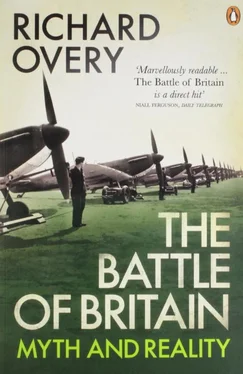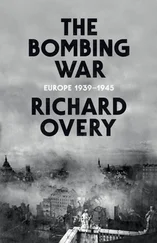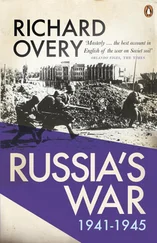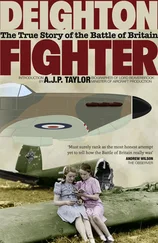It is more difficult to gauge German intentions. Was Hitler serious about the war against Britain? The British public was never in any doubt in 1940 that Hitler wanted to invade if he could. The German records show less certainty. Three conferences on 21, 25 and 31 July reveal strong doubts not about the desirability, but over the operational feasibility of invasion. The third of these meetings, called on 31 July between Hitler and his military chiefs, also supplies the first evidence that Hitler was now thinking of a large-scale campaign against the Soviet Union in 1941. This plan, like Operation Sealion, did not originate with Hitler. The German army undertook contingency planning at the beginning of July for a brief operation against the Red Army with the limited objective of securing German predominance throughout eastern Europe, and keeping the Soviet Union at arm’s length. During June 1940 the Soviet Union had taken advantage of Germany’s war in the west to absorb the Baltic States and the Romanian province of Bessarabia. This growing threat took Hitler beyond the idea of a mere limited strike; on 31 July he instead suggested a massive campaign to annihilate the Soviet system in one blow. This campaign would secure German hegemony in the east and access to the vast food and material resources of western Asia. Preparatory work was authorized, though a final directive for what became known as ‘Operation Barbarossa’ was not issued until 18 December. 32
Such evidence has been used to suggest that the war in the west was continued only to lull Soviet suspicions, and that invasion was never seriously contemplated. This is to distort the reality. The campaigns against Britain and the Soviet Union were not alternatives. Hitler was genuinely uncertain about how to bring about either a political or military settlement with Britain, and kept several strings to his bow. He was willing to seize opportunities as they arose. He hoped that blockade and air attack might so reduce British resolve and undermine the capacity to fight that invasion would be little more than a mopping-up operation. The preparations made for the campaign were far too extensive for a mere feint. If the campaign did not work, and there was no certainty that it would, an assault on the Soviet Union, he told his commanders, would remove Britain’s last hope of continuing the war, even with American assistance. Either way, the object was sooner or later to destroy British power. If the RAF could be defeated, it might be sooner.
The situation as it presents itself for our Air Force for the decisive struggle against Britain is as favourable as it can be… What will happen when the German Air Force employs its whole strength against England? The game looks bad for England and her geographical and military isolation. We can face with confidence the great decision to come!
GENERAL QUADE, FORMER COMMANDANT, LUFTWAFFE STAFF COLLEGE, JULY 1940 1
The military confrontation in the autumn of 1940 became a test of strength between two rival air forces. The other services waited on the outcome. Armies on both sides of the Channel trained for the coming battle. Navies waited to contest the narrow seas across which German soldiers would have to be conveyed in makeshift transports and hastily converted barges. But none of this mattered as long as the German Air Force had not yet won mastery of the air over southern Britain. For Hitler this was the essential precondition for invasion. ‘If the effect of the air attacks,’ he told Admiral Raeder at the end of July, ‘is such that the enemy air force, harbours, and naval forces, etc., are heavily damaged, operation “Sea Lion” will be carried out in 1940.’ If Germany’s air force could not achieve what would now be called the ‘degrading’ of British air and naval forces, Hitler proposed postponing invasion until May 1941. 2
The two air forces that fought what later came to be called the Battle of Britain were led and organized in very different ways. The contrast was personified at the very top, in the choice of air minister. This was a difference typical of the gulf that separated a populist, authoritarian dictatorship from a parliamentary democracy dominated by established elites. Germany’s air minister was the flamboyant National Socialist Hermann Goering, a decorated First World War fighter pilot with the famous Richthofen Squadron. He was an ‘Old fighter’ of the Party, who had risen to become one of the principal political playmakers of the Third Reich. He became minister in 1933, and in 1935 also became the German Air Force commander-in-chief, combining both administrative and military responsibilities. Thanks to his considerable political weight, the air force was built almost from the ground up in only six years. He was a vain and ruthless man, a crude popular orator, a corrupt and ambitious lieutenant whose power expanded during the 1930s in step with Germany’s massive remilitarization. The popular image of a baroque, drug-dependent sybarite is largely caricature. As a commander he lacked judgement, but he did not lack energy or interest. From early August 1940 Goering assumed direct command of the air war against Britain.
Britain’s air minister was Sir Archibald Sinclair. He had been second-in-command of the battalion that Churchill briefly led on the Western Front in 1915–16. After the war he went on to a career as a Liberal Member of Parliament, and by 1940 was leader of the Liberal fraction in the Commons. He had no experience of air power (though his parliamentary under-secretary had flown in the Royal Flying Corps during the First World War). Churchill appointed him to his post on the day he became prime minister, which left him with less than three months in office before the onset of the battle. Sinclair was straight out of that rich British tradition of the gifted amateur. As a result he was not regarded as a particularly good minister, though by all accounts a good parliamentary speaker, and a committed defender of the force he represented. His virtues, according to Sir Maurice Dean, who worked with Sinclair throughout the war, were those of the British genteel establishment: ‘thoroughly competent, completely devoted and highly respected… a great gentleman’. 3Sinclair epitomized that British elite of dignified public servants so much despised and ridiculed in German propaganda. Goering, on the other hand, was everything Sinclair was not.
Sinclair, unlike his opposite number, made no pretence at leading the Royal Air Force. The British system did not include a commander-in-chief for each defence service. It was a system run by committees. The military side of the British air effort was placed under the Air Staff, whose leader sat on the Chiefs of Staff Committee, where all major issues of strategy and operations were decided. In August 1940 this position was held by Air Chief Marshal Sir Cyril Newall, a career airman nearing the end of his tenure. He was not regarded as an inspirational leader. Like Sinclair’s, Newall’s is not a name that has entered the Battle of Britain pantheon. He was none the less one of the key architects of RAF expansion in the critical years between 1937 and 1940, and a keen defender of air force interests. The British system required effective committee men and military managers; Newall did not command the battle, but he made it possible to fight.
It was the commander-in-chief of Fighter Command, Air Chief Marshal Sir Hugh Dowding, who gave battle to Goering. In 1940 he was already fifty-nine years old and at the end of his career. The son of a Devon schoolmaster, he joined the army in 1899 and served in India and the Far East. A keen skier and polo-player, he taught himself to fly and became a reserve officer in the fledgling Royal Flying Corps in 1914. In the First World War he flew regularly in combat, though already a senior officer in his mid-thirties. In 1916 he was posted to Training Command, and his front-line assignment given to Newall, a former officer in the Gurkhas and the future chief of staff. Dowding became a career air officer in the post-war RAF and when the service was reorganized into separate commands in 1936, he was appointed to lead Fighter Command. Unlike the German system of air fleets, each of which was composed of a mixed force of fighters, bombers, dive-bombers, etc., the RAF was organized functionally, with separate commands for fighters, bombers, coastal aircraft, reserves, training and, later, maintenance. The new system was designed to improve the efficiency and fighting power of the air service; in Fighter Command it produced an organization ideal for the unified defence of the British Isles.
Читать дальше












